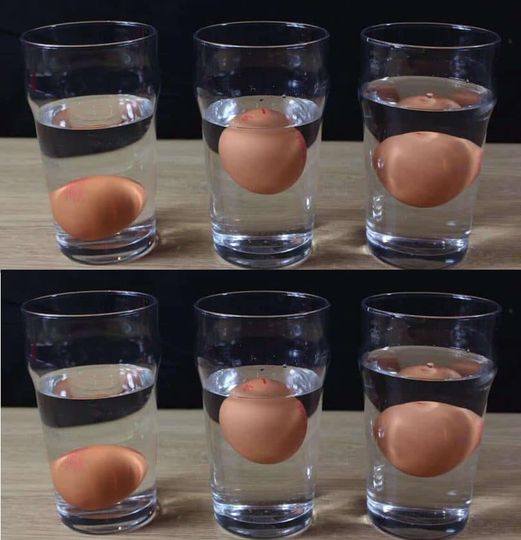Eggs are a staple in many kitchens, but determining their freshness can be tricky. With their opaque shells, it’s not always obvious if they’re still good to eat. Fortunately, there are several reliable methods to assess an egg’s freshness. Let’s explore five foolproof ways to determine if your eggs are fresh or have gone bad.Reddit+1The Pioneer Woman+1
1. Check the Expiration Date
The first step in assessing an egg’s freshness is to look at the expiration or “best by” date on the carton. While this date provides a general guideline, it’s not always definitive. Eggs can often remain fresh for several weeks beyond this date if stored properly in the refrigerator. However, if the eggs are significantly past the expiration date, it’s advisable to perform additional tests to ensure their safety.The Pioneer Woman+7Food & Wine+7Simply Recipes+7Health+1Southern Living+1
2. The Float Test
One of the most popular methods to test an egg’s freshness is the float test. Here’s how it works:Southern Living+5feewoman.moonlightchai.com+5Food & Wine+5
- Fill a bowl with cold water.
- Gently place the egg into the water.
- Observe its behavior:
- If the egg sinks to the bottom and lays flat on its side, it’s fresh.
- If it sinks but stands upright, it’s still safe to eat but should be used soon.
- If it floats to the top, it’s likely spoiled and should be discarded.Taste of Home+11Southern Living+11The Spruce Eats+11The Spruce Eats
The science behind this test is that as eggs age, the small air pocket inside enlarges due to moisture loss, making the egg more buoyant.The Spruce Eats+1The Pioneer Woman+1
3. The Sniff Test
Your sense of smell is a powerful tool in detecting spoiled eggs. To perform the sniff test:Epicurious+2Food & Wine+2Health+2
- Crack the egg open into a clean bowl.
- Smell the egg.
- A fresh egg will have a neutral odor.
- A spoiled egg will emit a distinct sulfuric or rotten smell.Health+1The Pioneer Woman+1EpicuriousSouthern LivingFood & Wine+1Epicurious+1
If the egg smells off in any way, it’s best to err on the side of caution and discard it.The Thrifty Homesteader+7Health+7The Spruce Eats+7
4. Visual Inspection
Examining the egg’s appearance can provide clues about its freshness:
- Shell: Check for cracks, sliminess, or powdery residue. A slimy or powdery shell may indicate bacterial or mold contamination.
- Egg White and Yolk: After cracking the egg, observe the egg white and yolk. A fresh egg will have a firm yolk and a thick, slightly cloudy white. An older egg will have a flatter yolk and a thinner, more watery white. Discoloration, such as pink, green, or iridescent hues, can indicate bacterial growth and the egg should be discarded.The Spruce Eats+3Health+3Southern Living+3Southern Living
5. The Shake Test
Another method to assess an egg’s freshness is the shake test:Health+1Southern Living+1
- Hold the egg close to your ear.
- Gently shake it.
- If you hear a sloshing sound, the egg is likely old, as the contents have thinned over time.
- A fresh egg will not produce any sound when shaken.EpicuriousSouthern Living+1feewoman.moonlightchai.com+1
This method is less reliable than the others but can be used in conjunction with them for a more accurate assessment.
Additional Tips for Egg Storage and Safety
- Refrigeration: Store eggs in their original carton in the coldest part of the refrigerator, not in the door, to maintain a consistent temperature.
- Avoid Washing: Do not wash eggs before storing them, as this can remove the protective bloom and increase the risk of contamination.
- Use-by Dates: While eggs can last beyond their expiration date, it’s best to use them within three to five weeks of purchase for optimal freshness.
- Cooking Thoroughly: Always cook eggs thoroughly to reduce the risk of foodborne illnesses like salmonella.Health+1Epicurious+1EpicuriousEpicurious+3Southern Living+3The Pioneer Woman+3
Conclusion
Determining the freshness of an egg doesn’t have to be a guessing game. By employing these simple tests—the expiration date check, float test, sniff test, visual inspection, and shake test—you can confidently assess whether your eggs are safe to consume. Proper storage and handling further ensure their longevity and safety. When in doubt, it’s better to discard questionable eggs than to risk foodborne illness.The Pioneer Woman+2Health+2Food & Wine+2

